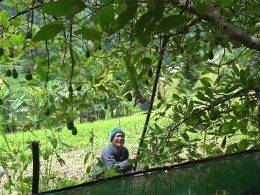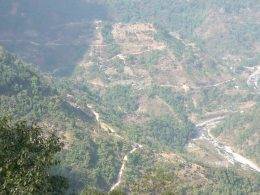The Ministry of Infrastructure and Transport has reaffirmed its commitment to providing affordable homes for low-income families, with the Green and Resilient Affordable Housing Project progressing steadily toward completion by June 2028.
Speaking during a recent Meet the Press session, Infrastructure and Transport Minister Chandra Bdr. Gurung said that the initiative, supported by the Asian Development Bank (ADB) with a financing package of USD 37 million, aims to ease Bhutan’s housing shortage by offering secure and affordable housing to more than 800 families across the country.
Progress Across the Country
Construction under the project began in 2022, and several milestones have already been reached.
In Trashi Yangtse, 32 housing units have been completed and allotted to families as of August 2025. Another 32 units in Samdrup Jongkhar are nearing completion and are expected to be handed over to residents in November.
Meanwhile, additional sub-projects are under construction in Samdrup Jongkhar, Nganglam, and two sites in Phuentsholing, while works in Thimphu, Tsimalakha, Samtse, and Pema Gatshel remain in various stages of the design phase.
Although the project initially targeted more than 1,000 housing units, the number was revised to around 800 due to rising construction costs. The homes will ultimately be distributed across ten locations, including Thimphu, Samtse, Pema Gatshel, and Chhukha.
Prioritising the Most Vulnerable
Minister Gurung emphasized that the allocation of homes will focus on supporting the most vulnerable groups.
“Families with a gross monthly income below Nu 40,000 will be prioritised when it comes to allocating the units,” he said. “The project will also give priority to single female-headed households, municipal workers, and persons with disabilities.”
He added that while these are the general guidelines, the implementing agency has its own detailed eligibility criteria to ensure that the homes reach those most in need.
A Long-Term Vision for Housing
Beyond the current project, the Ministry is also developing a National Housing Strategy in collaboration with international experts. The comprehensive plan aims to guide future housing policy, covering homeownership schemes, condominium regulations, financing models, and long-term urban development.
A key feature of the upcoming strategy will be a savings-linked homeownership mechanism, which encourages individuals to save toward purchasing a home. The government, in turn, will support these efforts through bonuses, subsidies, and other financial incentives.
A Step Toward Sustainable Urban Development
The Green and Resilient Affordable Housing Project represents a major step in addressing the growing housing demand, particularly among low-income families, while promoting sustainability and resilience in construction.
If progress continues as planned, more than 800 families will have a safe, stable place to call home by mid-2028, marking a significant achievement in Bhutan’s efforts to provide equitable access to affordable housing.








